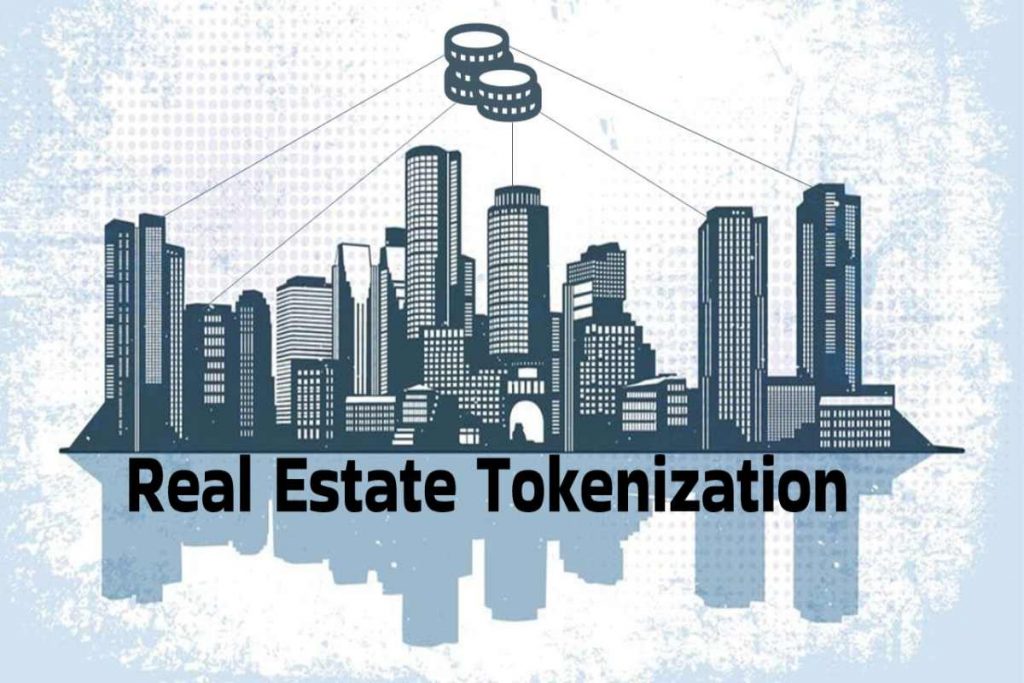Real estate tokenization: For many potential investors, the capital-intensive aspect of real estate investing remains a considerable barrier to entry. As a result, the advantages of investing in residential and commercial real estate appear to be limited to high-net-worth people, families, and corporations.
Table of Contents
But What If Real Estate Tokenization Lowers That Barrier For People Like You?
We will discuss that in this post. Regardless of your financial status or background, we will examine how real estate asset tokenization lowers entry barriers for individual and corporate investors.
What Is Real Estate Investment Tokenization?
Tokenization is creating, distributing, and managing digital tokens that represent units of ownership of real estate assets. Instead of traditional paper documentation, investors can use virtual tokens to carry out their transactions in a secure and legally binding process.
Looking at the words token and tokenization, the whole concept might sound too technical for some people. Let’s break down a bit more for everyone.
Also Read: How To Start A Business: Step By Step Guide
What Is A Token?
In the traditional banking context, tokens will use for various purposes. It defines it as a thing that serves as representing something also. The second meaning is “a voucher that can be exchanged for goods or services, typically as a gift or as part of a promotional offer.”
Looking at today’s blockchain technology world, a token is a type of cryptocurrency that represents an asset. Interestingly, these tokens can use for various purposes, including storing value, making purchases, or investing.
In the context of real estate tokenization, a token may represent the right to participate in profits from the use of an asset, an interest in a legal entity that owns tokenized real estate, an interest in a tokenized debt instrument, or ownership of an interest in real estate.
Whether you are paying attention to residential or commercial property tokenization, some of the assets that can tokenize include office buildings, single-family homes, retail space, multi-family homes, warehouses, and more.
Benefits Of Real Estate Tokenization
Regardless of which spectrum you choose to participate in real estate tokenization, some of the potential benefits are within your reach. Today, real estate investing is no longer an exclusive playground for wealthy individuals, families, and businesses. People like you can join today. Below are some of the profits of tokenized real estate investing.
Lower Capital Invested
Tokenized real estate’s digital nature allows for smaller ownership units. Put another way; smaller tokenized real estate asset units frequently demand less cash from investors. One of the many significant advantages of real estate tokenization is this. It opens up investing options for folks who may otherwise shut out.
Higher Liquidity
The simple valuation, fractional ownership, and transaction flexibility contribute to higher liquidity. When these factors are in place, tokenized real estate offers revenue-boosting opportunities for most stakeholders.
The digital nature of real estate tokens, for example, makes it easier to evaluate them before, during, and after a transaction. Interestingly, the same processes that took weeks or months to complete a real estate transaction will end in a matter of days. The result is that increased transaction frequency and flexibility create value for all parties.
Naturally, a higher number of closed deals brings more operating fees for the managers and profits for the investors. These are the possible results of increased liquidity.
New Source Of Development Capital
Given that most real estate development projects take place in the private markets pooling a significant amount of capital to get things done is never easy.
But in today’s world, commercial real estate tokenization creates a new source of capital for development projects. More investors can now participate by reducing the need for investment and thus providing the capital needed to finance projects. Instead of wading through traditional funding sources, tokenization is now helping people raise money through debt and equity.
Which path you choose as a project manager or investor depends on your real estate risk tolerance. Beginners should start with small equity units.
Increased Transparency
Aside from being capital intensive, real estate deals are difficult to source, structure, finance, and close when the sensitive issues of trust and credibility bring into play; things can get even more difficult.
However, using blockchain technology makes it easy to record every transaction without any costly and time-consuming paperwork. This is precisely what makes due diligence, increased clearness, and business flexibility possible.
Based on these facts, the deal history, pricing, and present value of tokenized real estate assets can will analyz almost on the fly before a new transaction will make. These are some of the possible benefits of tokenization that you might experience if you’re on the right track.
Conclusion
If you start with a limited amount of capital, chances are you’ll discover some other exciting benefits of tokenized real estate investing. As you gain experience with this type of investment, you can minimize potential risks.
Most importantly, consider your technical experience with blockchain and cryptocurrency before diving in. Also, consider the legality of the investment options offered to you. Try to assess the credibility of the companies involved. Are the offering companies registered with the responsible supervisory authorities at the real estate location?
While tokenization is more digital, you don’t have to ignore the prevailing real estate laws in the country, state, or city where the underlying properties will locate.
Also Read: What Are The Most Important Technology Trends For 2022

Review What is Real Estate Tokenization, Benefits, And More. Cancel reply